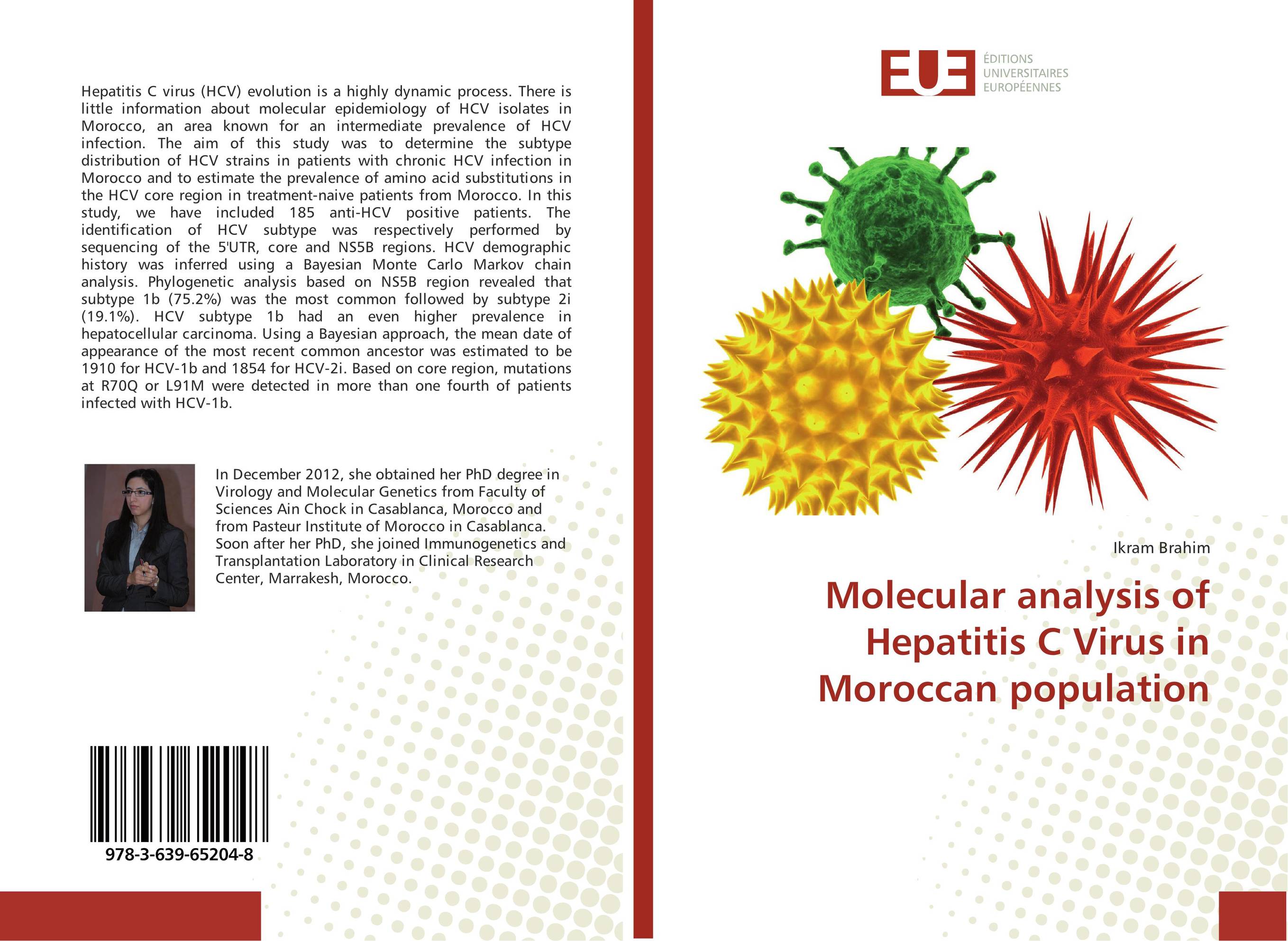| Поиск по каталогу |
|
(строгое соответствие)
|
- Профессиональная
- Научно-популярная
- Художественная
- Публицистика
- Детская
- Искусство
- Хобби, семья, дом
- Спорт
- Путеводители
- Блокноты, тетради, открытки
Molecular analysis of Hepatitis C Virus in Moroccan population.

В наличии
| Местонахождение: Алматы | Состояние экземпляра: новый |

Бумажная
версия
версия
Автор: Ikram Brahim
ISBN: 9783639652048
Год издания: 2017
Формат книги: 60×90/16 (145×215 мм)
Количество страниц: 80
Издательство: ?ditions universitaires europ?ennes
Цена: 21983 тг
Положить в корзину
| Способы доставки в город Алматы * комплектация (срок до отгрузки) не более 2 рабочих дней |
| Самовывоз из города Алматы (пункты самовывоза партнёра CDEK) |
| Курьерская доставка CDEK из города Москва |
| Доставка Почтой России из города Москва |
Аннотация: Hepatitis C virus (HCV) evolution is a highly dynamic process. There is little information about molecular epidemiology of HCV isolates in Morocco, an area known for an intermediate prevalence of HCV infection. The aim of this study was to determine the subtype distribution of HCV strains in patients with chronic HCV infection in Morocco and to estimate the prevalence of amino acid substitutions in the HCV core region in treatment-naive patients from Morocco. In this study, we have included 185 anti-HCV positive patients. The identification of HCV subtype was respectively performed by sequencing of the 5'UTR, core and NS5B regions. HCV demographic history was inferred using a Bayesian Monte Carlo Markov chain analysis. Phylogenetic analysis based on NS5B region revealed that subtype 1b (75.2%) was the most common followed by subtype 2i (19.1%). HCV subtype 1b had an even higher prevalence in hepatocellular carcinoma. Using a Bayesian approach, the mean date of appearance of the most recent common ancestor was estimated to be 1910 for HCV-1b and 1854 for HCV-2i. Based on core region, mutations at R70Q or L91M were detected in more than one fourth of patients infected with HCV-1b.
Ключевые слова: g?notype, Morocco, Chronic hepatitis C, Genotype, subtype 1b, amino acid, Hepatocellular carcinoma, Bayesian approach



